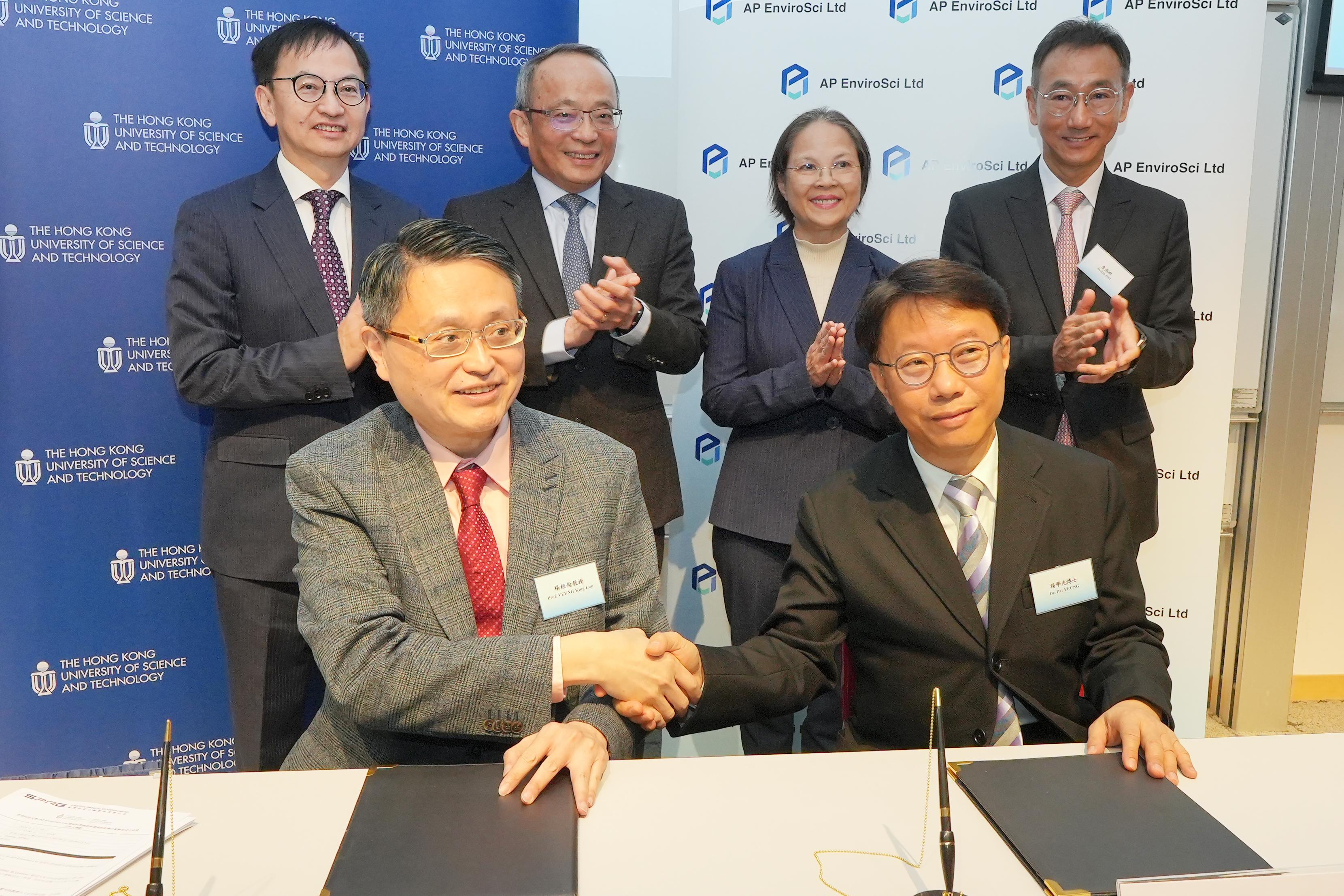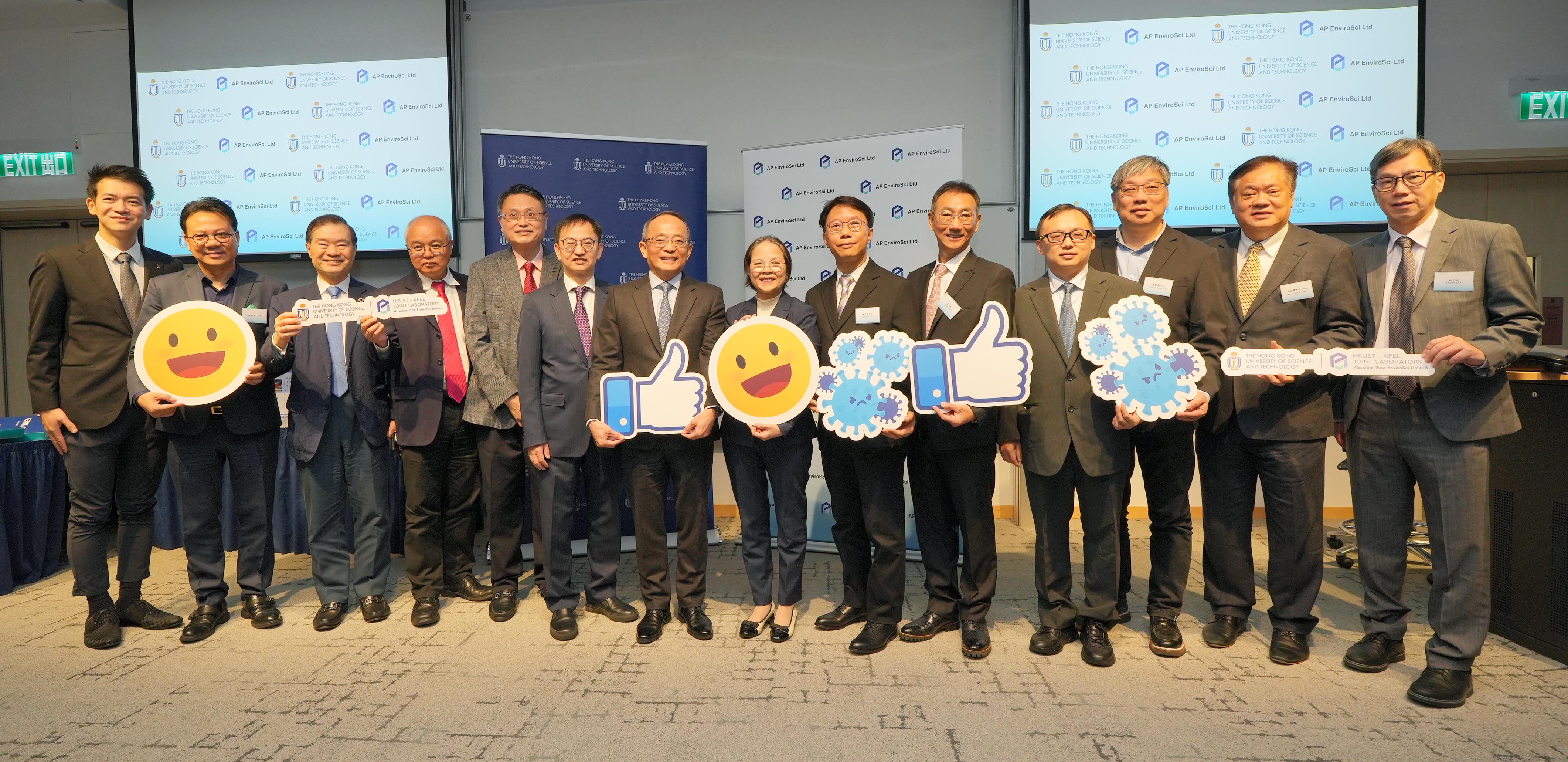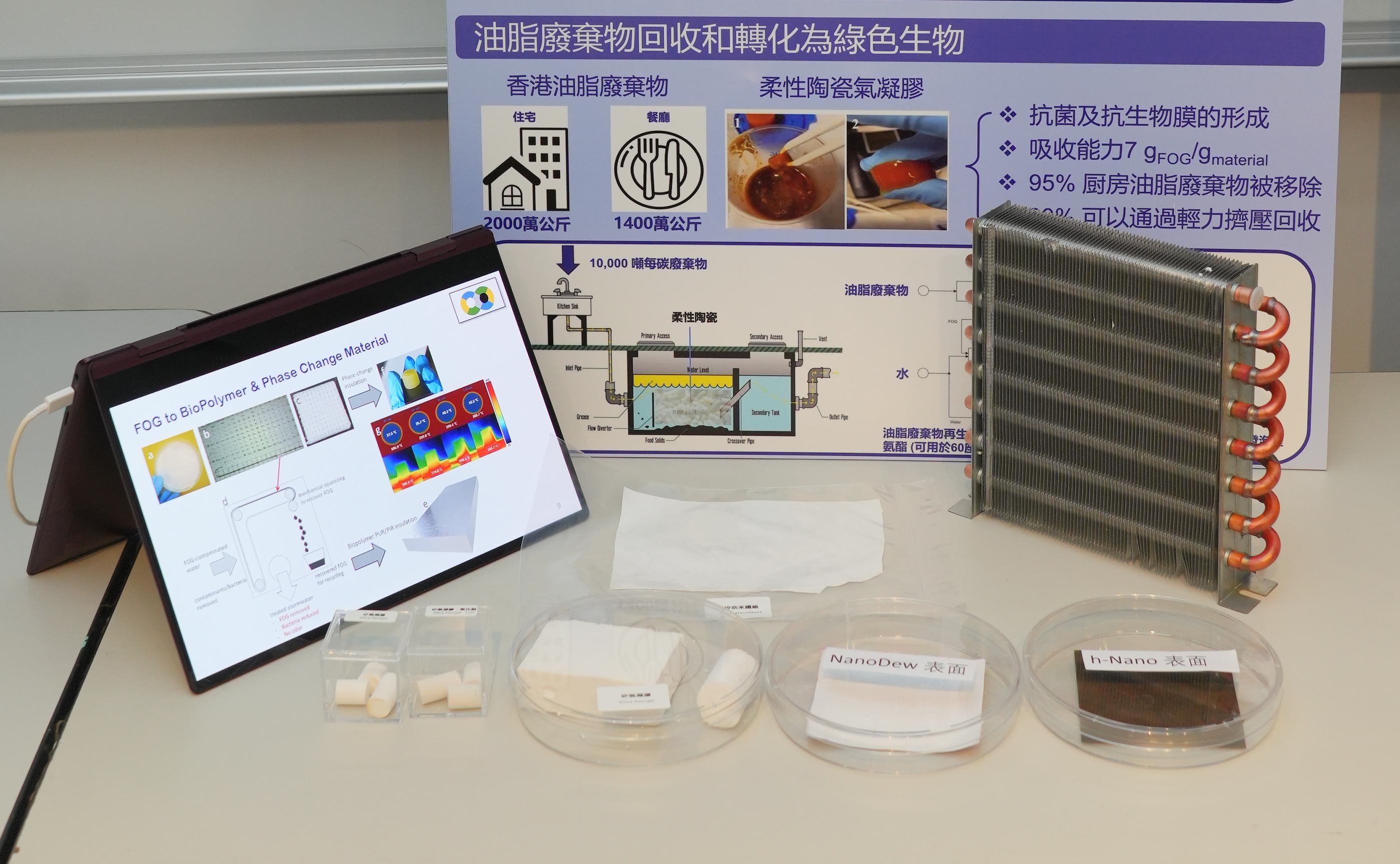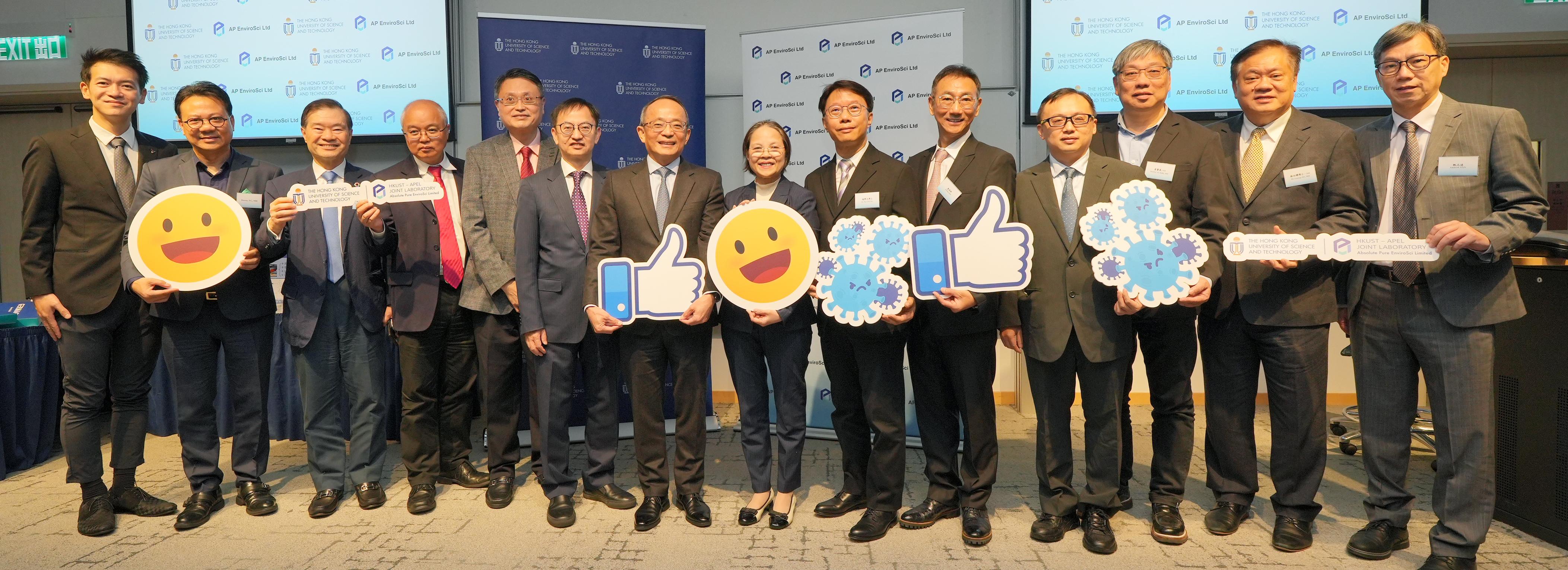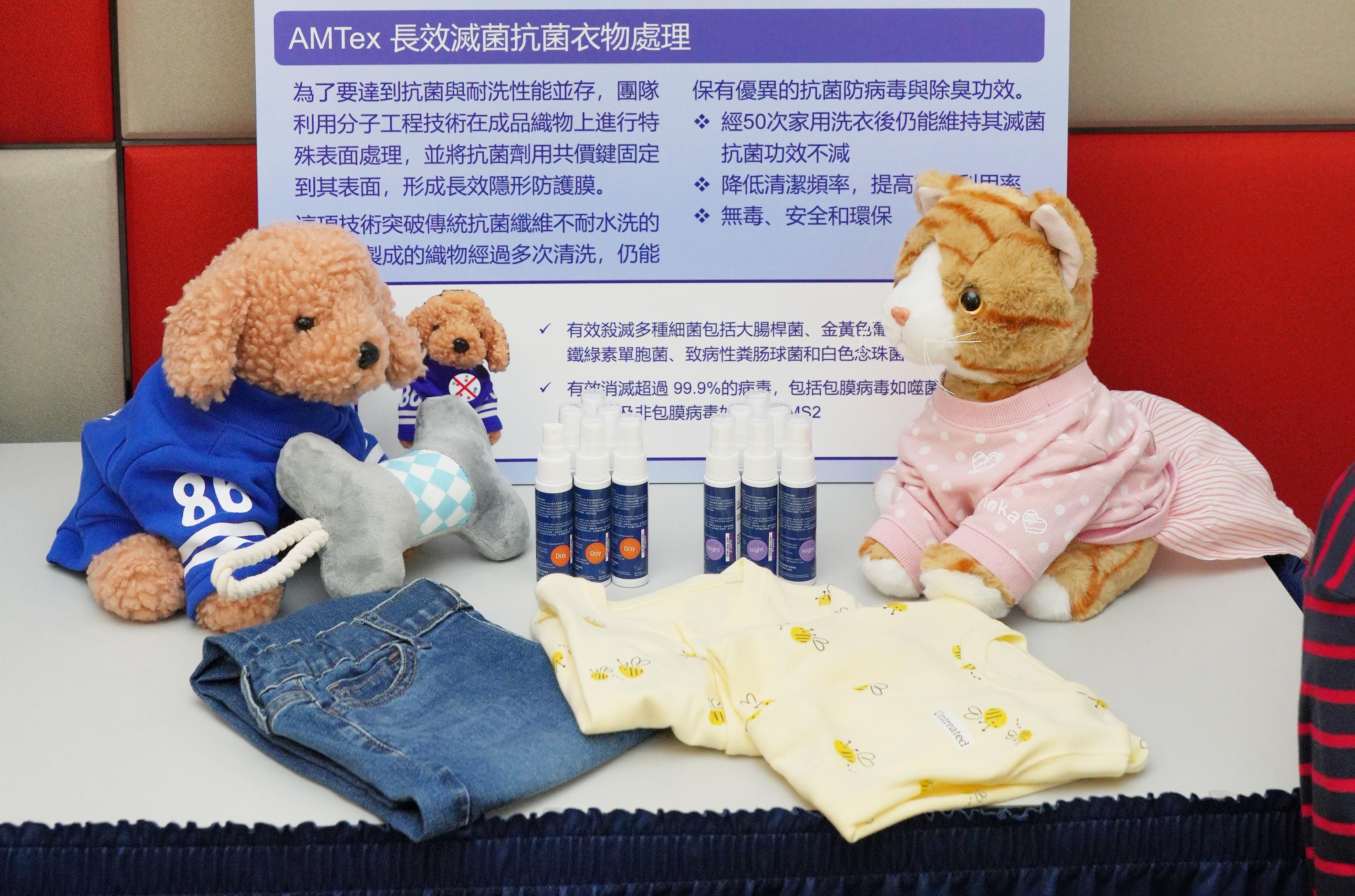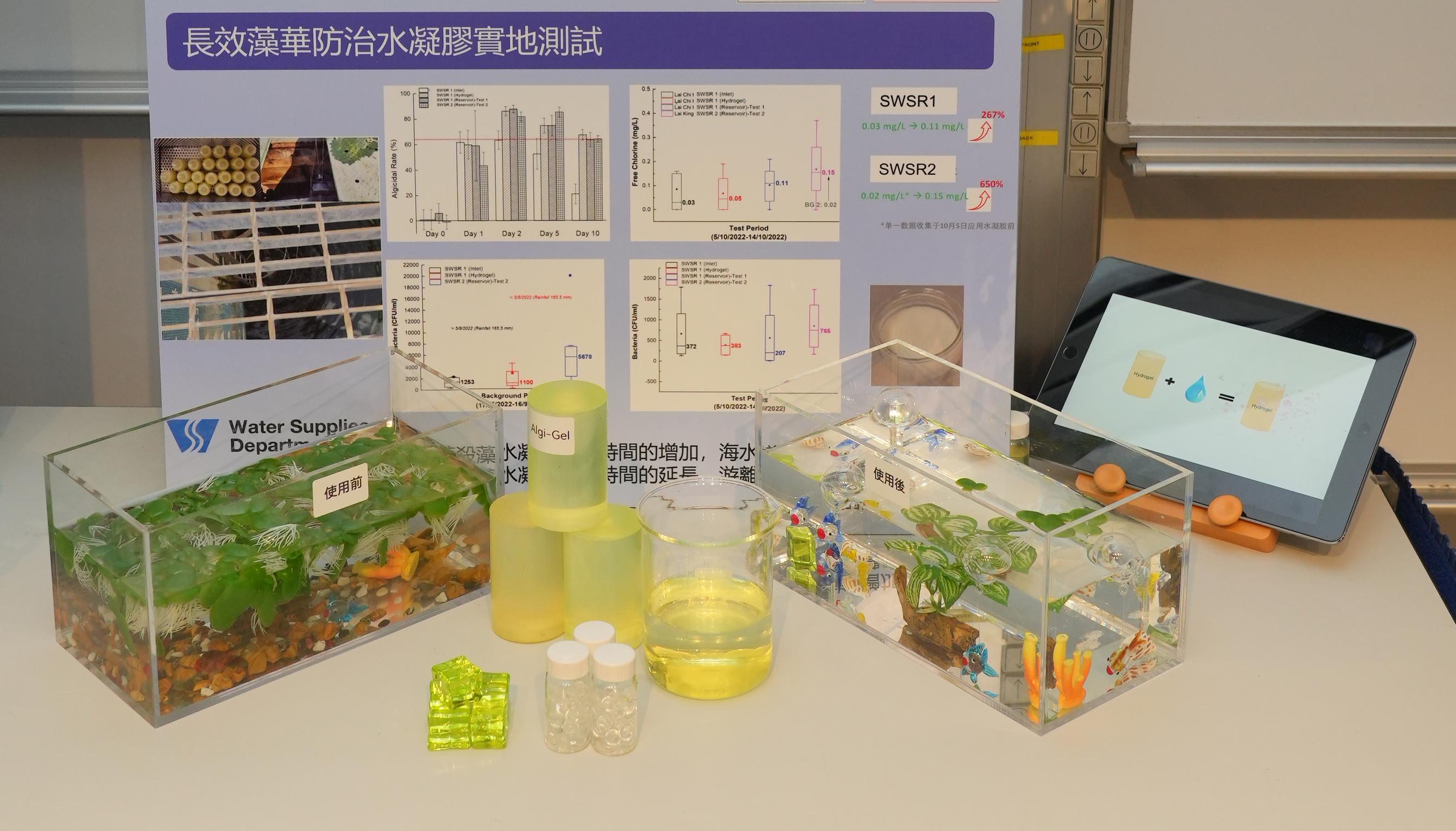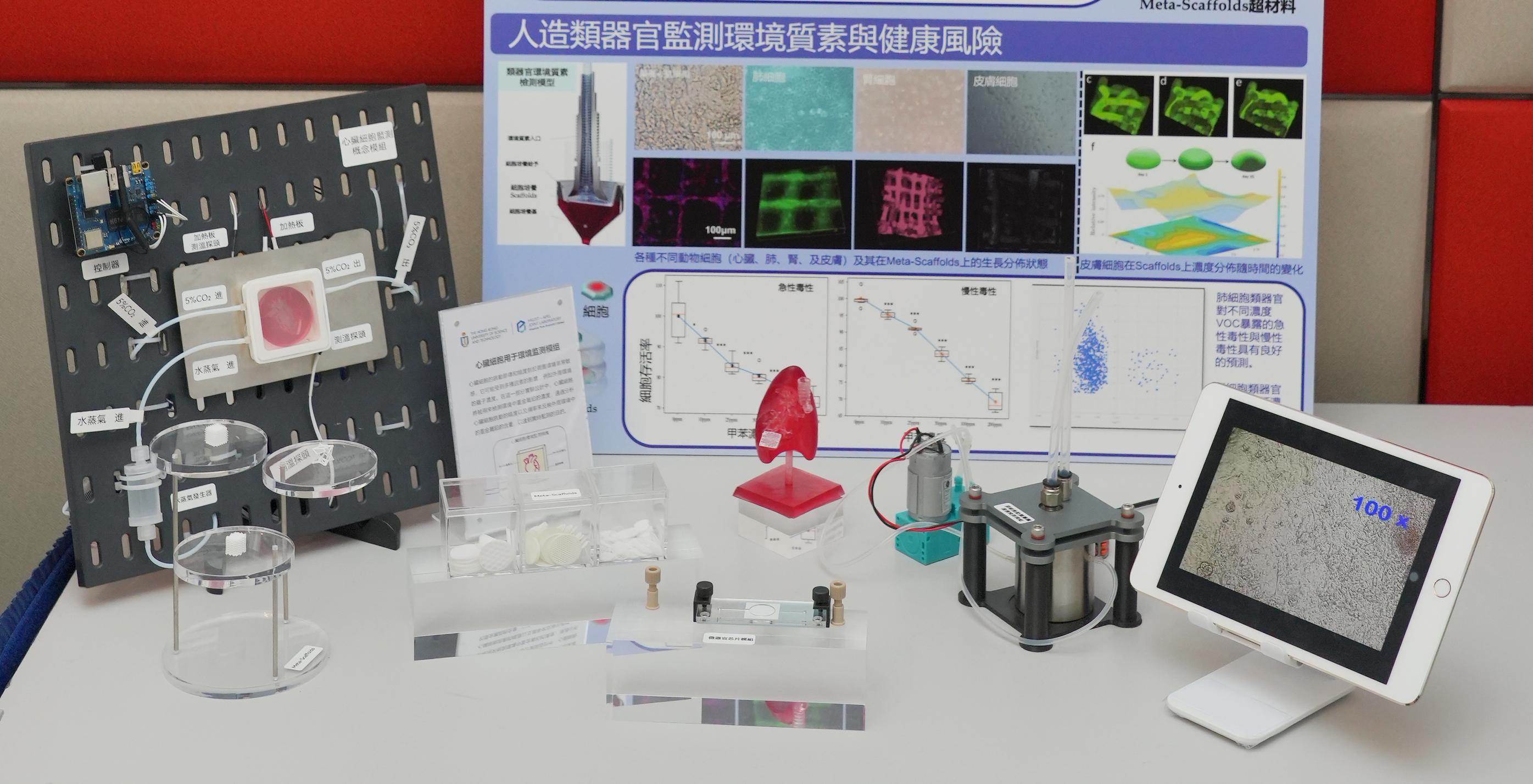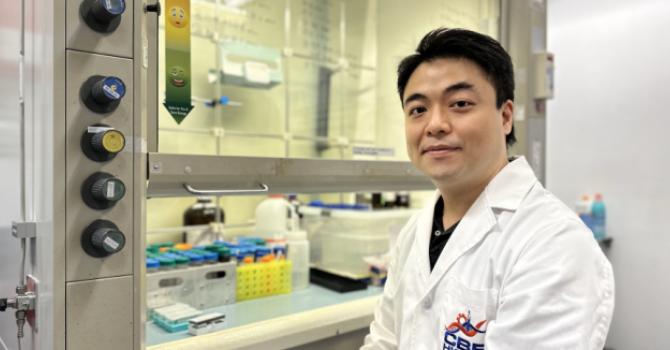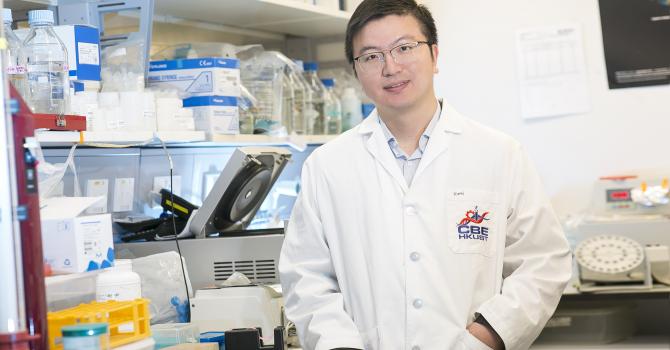HKUST and APEL Establish Joint Laboratory to Develop Novel Health and Environmental Innovations
Hong Kong University of Science and Technology (HKUST) has jointly established a laboratory with Absolute Pure EnviroSci Limited (APEL) to develop and translate novel discoveries into groundbreaking health and environmental innovations. These include highly effective and long-lasting pest repellent against bedbugs that can also inactivate up to 99.9 percent of highly-infectious viruses, bacteria and hard-to-kill spores, as well as artificial organoids that could help quantify pollution’s risks on human health and provide essential data for establishing a health monitoring system in Hong Kong and Greater Bay Area (GBA).
Prof. King-Lun YEUNG from the Department of Chemical and Biological Engineering and Division of Environment and Sustainability at HKUST and Dr. Pat YEUNG, Director of APEL, signed the memorandum today on the establishment of HKUST-AP EnviroSci Ltd Joint Laboratory (the Joint Lab), under the witnesses of Miss Diane WONG Shuk-Han, Under Secretary for Environment and Ecology of the HKSAR, Prof. Tim CHENG, HKUST Vice-President for Research and Development, Mr Jackin JIM, Chairman of Yee Hop Holdings Ltd (Yee Hop) and Dr. David CHUNG Wai-Keung, Chairman of APEL. Other distinguished guests who celebrated the launch of the Joint Lab included Prof. YANG Zifeng, Associate Dean of the Guangzhou Institute of Respiratory Health at The First Affiliated Hospital of Guangzhou Medical University, Mr. Andrew Yan, CEO of Yee Hop, and Mr. WONG Po-Kee, Honorary Deputy Secretary General of the Sports Federation & Olympic Committee of Hong Kong, China.
With an initial funding of HK$20 million from APEL, an affiliated subsidiary of the listed company Yee Hop, the Joint Lab will contribute sustainable solutions to support water resources management, reduce and revalorize food waste and support decarbonization by enhancing energy efficiency from conditioning to power plant.
The advanced formula, derived from the anti-pathogenic Multilevel Antimicrobial Polymer (MAP-1) – one of the earliest disinfectants to provide long-lasting protection against SARS-CoV-2 during the global COVID-19 pandemic – has been certified by two labs in Mainland China and Switzerland of having 100% repellency against bedbugs. This eco-friendly anti-pest spray is set to be adopted by Hong Kong athletes during the Paris 2024 Olympic Games, in response to a growing bedbug issue in Europe.
The formula can also be incorporated into fabrics such as cotton and linen without altering their texture, providing long-lasting anti-pathogenic protection to clothing and accessories, especially those worn or used by patients, elderly or infants.
Speaking at the ceremony, the Under Secretary for Environment and Ecology, Miss Diane Wong, said that she was pleased to have witnessed the establishment of the Joint Laboratory. She pointed out that environment and health are closely related, and climate change is the most severe and pressing challenge nowadays. Through the collaboration between universities and private enterprises, the advantages of both parties can be effectively utilized to generate synergies and accelerate the transformation as well as application of scientific research results. In order to safeguard public health, the HKSAR Government has been actively responding to climate change by implementing proactive decarbonization strategies and measures to achieve carbon neutrality before 2050. In parallel, the Government is also stepping up efforts to raise public awareness of the health risks associated with extreme weather while assisting the general public in making more adequate preparation for it.
HKUST Vice-President for Research and Development Prof. Tim Cheng said, “At HKUST, we believe that joint research units are important to universities in their research, development, and knowledge transfer efforts. These units provide a platform for collaboration between academia and industry, allowing us to leverage our strengths and expertise to tackle complex problems and develop innovative solutions. They also provide students with unique opportunities to gain practical experience and exposure to industry-relevant projects, preparing them for successful careers in their chosen fields. As a leading research university in Asia, HKUST is committed to empowering joint research units to make them successful. We believe that by working together with industry partners, we can accelerate the pace of innovation and make a meaningful impact on society.”
APEL Chairman Dr. David Chung said, “We are thrilled to be working with such an experienced team of professors at HKUST on this impactful project. The four main areas we will be focusing on are: environmental hygiene and sanitation, air and water purification, net-zero, circular resource utilization, and energy-saving decarbonization processes. With everything now in place, we look forward to developing technologies that can help change the world and make it a better place for our next generation."
Prof. Yeung, the Director of the Joint Lab, said, "HKUST empowers its members to make societal impacts through research translation and innovation. We are excited to work with APEL to create cutting-edge solutions to pressing health and environmental problems. Indeed, our joint efforts have borne innovative yet practical solutions that will ultimately improve the quality of life for communities in Hong Kong and the Greater Bay Area. Together, we will drive transformative solutions and make a lasting impact on society."
Researchers led by Prof. Yeung have also built 3D-printed cellular scaffoldings of human skin, lung, kidney, and heart cells to create artificial organoids* for monitoring air and water pollutions to directly measure their potential harm to human health. The cellular viability, functional changes, and biological expressions data from these artificial organoids will provide important health index to inform policy-makers locally and across the GBA on pollutions and pave the way to improving citizen’s health and well-being.
Other innovative solutions being developing by the Joint Lab included Algi-Gel, an award-winning hydrogel that controls and prevents the rapid proliferation of algae in fresh and seawater. It is currently being tested in partnership with the Water Supplies Department. The Joint Lab has also embarked on developing a sustainable washable air filter for better indoor air quality and an enhanced cooling surface to improve air conditioning and cooling systems.
* An organoid is a miniaturized and simplified version of an organ produced in vitro in three dimensions that mimics the key functional, structural, and biological complexity of that organ. Scientists use organoids to study development and disease in the laboratory.
